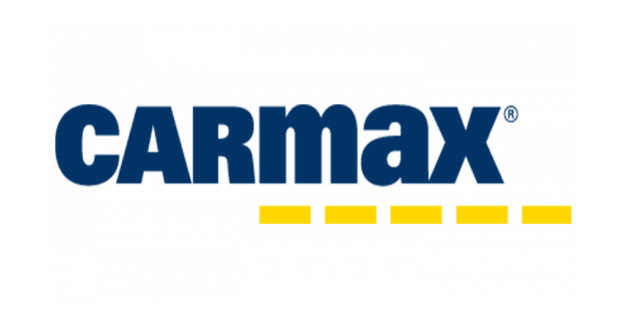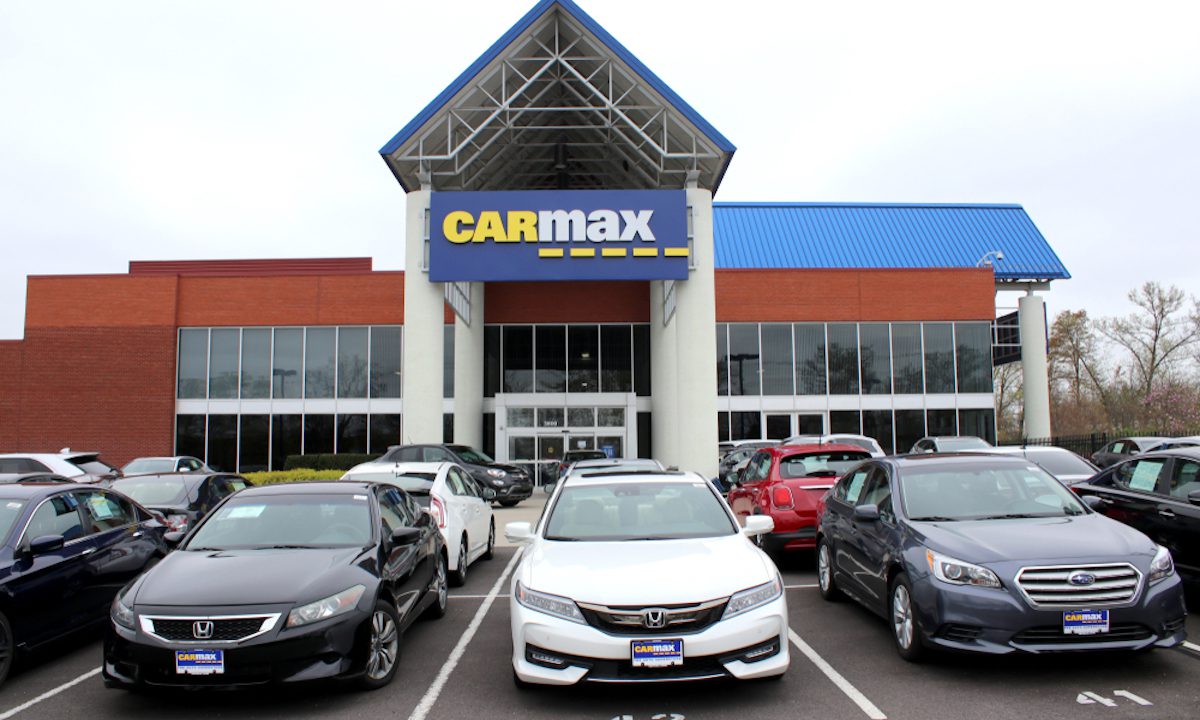CarMax Inc. (KMX) Q4 Earnings Miss Expectations Amid Market Challenges

CarMax Inc. (KMX:NYSE) Faces Challenges in Q4 Earnings Report
On Thursday, April 11, 2024, CarMax Inc. (KMX:NYSE) reported its fourth-quarter earnings, revealing figures that did not meet the market's expectations. The company announced an earnings per share (EPS) of $0.32, which was significantly lower than the anticipated $0.45. Additionally, CarMax's revenue for the quarter was approximately $5.63 billion, missing the expected mark of $5.79 billion. This report set the stage for a challenging period for the company, as it navigated through a tough used car market environment, compounded by high interest rates and a shift in consumer behavior.
Following the earnings announcement, CarMax's stock experienced a notable decline, dropping 11.7% over the week, as highlighted by The Motley Fool. This downturn was largely attributed to the company's failure to meet revenue and earnings expectations, which was further exacerbated by the current economic conditions, including high interest rates that have discouraged consumers from making vehicle purchases. The impact of these factors was evident in the company's performance, with a decrease in revenue by 1.7% to $5.63 billion and a decline in wholesale unit sales by 4%.
The used car market has faced significant challenges, with affordability becoming a major concern for consumers. This has been driven by high interest rates, which have increased monthly payments for buyers, and a general decrease in vehicle prices from the highs experienced during the pandemic. CarMax, in particular, has felt the effects of these market dynamics, leading to a delay in its goal to sell 2 million cars annually. Despite these hurdles, the company managed to maintain a relatively stable gross profit per retail used unit at $2,251, only a slight decrease from the previous year. However, this stability in gross profit was overshadowed by modest increases in sales, general, and administrative expenses, further impacting the company's bottom line.
CarMax's financial health and market valuation can be further understood through various financial metrics. The company's price-to-earnings (P/E) ratio stands at approximately 23.52, indicating the premium that investors are willing to pay for its earnings. The price-to-sales (P/S) ratio of about 0.42 suggests a relatively low valuation of the company's sales, while the enterprise value to sales (EV/Sales) ratio of 1.11 shows the company's valuation in relation to its sales after adjusting for debt. Additionally, the enterprise value to operating cash flow (EV/OCF) ratio of 64.34 highlights the company's valuation compared to its operating cash flow. Despite these financial indicators, CarMax's debt-to-equity (D/E) ratio of 3.10 points to a significant reliance on debt financing, which could pose risks in a challenging economic environment. However, the current ratio of 2.26 indicates a healthy capability to cover short-term liabilities with short-term assets, providing some financial stability amidst the uncertainties.
| Symbol | Price | %chg |
|---|---|---|
| TURI.JK | 1560 | 0 |
| IMAS.JK | 1155 | 0.87 |
| MPMX.JK | 965 | -0.52 |
| CARS.JK | 131 | 1.53 |

CarMax, Inc. (NYSE:KMX) Faces Financial Challenges Amid New Price Target
- RBC Capital sets a new price target for CarMax, Inc. (NYSE:KMX) at $59, suggesting a potential increase of 29.39% from the current price.
- CarMax's stock experienced a significant decline following its second-quarter earnings report, with a decrease of 20.07%.
- The company's market capitalization stands at approximately $6.84 billion, indicating its significant presence in the market despite recent challenges.
CarMax, Inc. (NYSE:KMX) is a leading used car retailer in the United States, known for its no-haggle pricing and extensive inventory. The company operates through two segments: CarMax Sales Operations and CarMax Auto Finance. CarMax competes with other major players in the automotive retail industry, such as AutoNation and Penske Automotive Group.
On September 26, 2025, RBC Capital set a new price target for CarMax at $59. At the time, the stock was trading at $45.60. This new target suggests a potential increase of 29.39% from the current price. However, CarMax's recent financial performance has been challenging, as highlighted by CNBC Television's Phil LeBeau.
CarMax's stock experienced a significant decline following its second-quarter earnings report. The report did not meet market expectations, leading to a sharp drop in its share price. Currently, the stock is priced at $45.60, reflecting a decrease of 20.07% with a change of -$11.45. This decline has impacted investor sentiment.
Today, KMX has fluctuated between a low of $42.75 and a high of $46.65. Over the past year, the stock has reached a high of $91.25 and a low of $42.75. Despite these fluctuations, CarMax maintains a market capitalization of approximately $6.84 billion, indicating its significant presence in the market.
The trading volume for the day is 28.42 million shares, showing active investor interest. As CarMax navigates its financial challenges, the new price target set by RBC Capital may provide a positive outlook for potential recovery and growth in the future.

CarMax, Inc. (NYSE:KMX) Faces Market Challenges Despite Solid Unit Margins
- CarMax reported earnings per share (EPS) of $0.64, below the estimated $1.03, with revenue of approximately $6.59 billion against the expected $7.02 billion.
- Retail used unit sales and comparable store used unit sales saw declines of 5.4% and 6.3%, respectively, impacting the company's stock value and financial performance.
- Despite a decrease in sales volume, CarMax maintained solid unit margins, with a gross profit per retail used unit of $2,216 and per wholesale unit of $993.
CarMax, Inc. (NYSE:KMX) is a leading retailer of used cars in the United States, operating through two segments: CarMax Sales Operations and CarMax Auto Finance. Known for its no-haggle pricing and comprehensive vehicle inspection process, CarMax competes with other used car retailers like AutoNation and Carvana.
On September 25, 2025, CarMax reported earnings per share (EPS) of $0.64, which was below the estimated $1.03. The company's revenue was approximately $6.59 billion, falling short of the expected $7.02 billion. This shortfall in earnings and revenue reflects the challenges CarMax is facing in the current market environment.
CarMax has experienced a decline in used-car sales, even after reducing prices. Retail used unit sales decreased by 5.4%, and comparable store used unit sales fell by 6.3%. Wholesale units also saw a reduction of 2.2%. These declines have significantly impacted the company's stock value and financial performance.
Despite these challenges, CarMax maintained solid unit margins. The gross profit per retail used unit was $2,216, and $993 per wholesale unit. The Extended Protection Plans (EPP) margin was $576 per retail unit, consistent with the previous year's second quarter. This indicates that while sales volume has decreased, the company has managed to maintain profitability on a per-unit basis.
CarMax's financial metrics provide insight into its market valuation and financial health. The company has a price-to-earnings (P/E) ratio of approximately 15.54 and a price-to-sales ratio of about 0.32. The enterprise value to sales ratio is around 0.98, and the enterprise value to operating cash flow ratio is approximately 25.17. The debt-to-equity ratio is about 2.85, indicating significant financial leverage. However, CarMax has a strong liquidity position, with a current ratio of approximately 2.39, suggesting it can cover its short-term liabilities.

CarMax, Inc. (NYSE:KMX) Surpasses Earnings and Revenue Estimates
- CarMax, Inc. (NYSE:KMX) reported earnings per share (EPS) of $1.38, beating the estimated $1.16 and showcasing significant growth from the previous year.
- The company achieved a revenue of approximately $7.55 billion, surpassing expectations and marking a 6% year-over-year growth.
- CarMax saw a 9% increase in units sold, with robust used-vehicle sales driving the company's performance.
CarMax, Inc. (NYSE:KMX), a leading retailer of used vehicles in the United States, operates through two segments: CarMax Sales Operations and CarMax Auto Finance. It offers a wide range of vehicles and related products, including extended protection plans. Competing with other used car retailers like AutoNation and Carvana, CarMax has established a strong presence in the market.
On June 20, 2025, CarMax reported earnings per share (EPS) of $1.38, surpassing the estimated $1.16. This strong performance is further highlighted by the company's first-quarter fiscal 2026 results, where EPS reached $1.38, exceeding the Zacks Consensus Estimate of $1.18. This marks a significant increase from the 97 cents per share recorded in the same quarter last year.
CarMax achieved a revenue of approximately $7.55 billion, exceeding the estimated $7.50 billion. The company's revenues for the first quarter of fiscal 2026 reached $7.55 billion, surpassing the expected $7.52 billion and reflecting a 6% year-over-year growth. This growth was primarily driven by robust used-vehicle sales, which rose by 7.5% to $6.1 billion.
The number of units sold also saw a notable increase of 9%, totaling 230,210 vehicles. CarMax's retail side showed particularly strong performance, with comparable store used unit sales rising by 8.1% compared to the previous year. During the quarter, CarMax purchased 336,000 vehicles from consumers and dealers, marking a 7% rise.
Following the release of its strong first-quarter results, CarMax's stock experienced a significant increase. The company has a price-to-earnings (P/E) ratio of approximately 21.05, indicating the market's valuation of its earnings. CarMax's debt-to-equity ratio of approximately 3.08 highlights its financial leverage, while a current ratio of around 2.31 suggests its ability to cover short-term liabilities.

William Blair Reaffirms Outperform on CarMax, Sees Path to Doubling Business
William Blair reiterated its Outperform rating on CarMax (NYSE:KMX), pointing to solid sales momentum and a strong setup for profitability acceleration in 2025 driven by better operating efficiency.
The firm sees significant upside potential as CarMax gains national market share in used vehicles aged 0 to 10 years. With its current share at 3.7%, analysts believe the company can move closer to the double-digit levels it has reached in its most established markets. As this expansion plays out, profits are expected to outpace sales growth thanks to improved SG&A leverage and a more lucrative finance division.
While bullish on the long-term trajectory, William Blair also flagged key risks, including the complexities of managing a high volume of depreciating inventory, dependence on asset-backed securitizations to support its financing arm, and macro sensitivity tied to big-ticket consumer purchases.
Still, the firm views CarMax as well-positioned to scale its business meaningfully in the years ahead.

CarMax, Inc. (NYSE:KMX) Faces Rising Loan Delinquencies Amidst Outperform Rating
- Wedbush reaffirms an "Outperform" rating for CarMax, Inc. (NYSE:KMX) with a $90 price target despite rising loan delinquencies.
- CarMax's Auto Finance division reports an increase in loan delinquencies and net losses for May, indicating potential concerns over credit quality.
- The company's market capitalization is approximately $9.8 billion, with a trading volume of 4,881,038 shares on the NYSE.
CarMax, Inc. (NYSE:KMX) is a leading retailer of used vehicles in the United States, operating through two segments: CarMax Sales Operations and CarMax Auto Finance. CarMax Sales Operations is responsible for selling used vehicles, while CarMax Auto Finance provides financing options to customers. The company faces competition from other used car retailers like AutoNation and online platforms such as Carvana.
On June 18, 2025, Wedbush reaffirmed its "Outperform" rating for CarMax, with the stock priced at $64.35. Despite the "hold" action, Wedbush continues to support CarMax, as highlighted by Benzinga, even as loan delinquencies rise. The current stock price of KMX is $64.33, reflecting a slight decrease of 0.1, or approximately -0.16% in percentage terms.
CarMax's Auto Finance division has reported an increase in loan delinquencies and net losses for May, raising concerns about credit quality. This follows two months of relative stability. The data from May showed a decline in performance compared to April and a year-over-year deterioration. Delinquency and loss rates increased more sharply than typical seasonal trends.
Wedbush analyst Scott Devitt has reiterated an "Outperform" rating for CarMax with a $90 price target, despite the rising delinquencies. Devitt cautions that ongoing weakness in credit performance could impact future loan loss provisions, especially as CarMax increasingly targets lower-tier borrowers to maintain interest margins. The company's market capitalization stands at approximately $9.8 billion, with a trading volume of 4,881,038 shares on the NYSE:KMX.

CarMax, Inc. (NYSE:KMX) Faces Challenges but Presents Potential Buying Opportunity
- CarMax, Inc. (NYSE:KMX) stock dropped 17% following a weaker-than-expected earnings report.
- The company's fourth-quarter earnings per share (EPS) increased by 81% but fell short of analyst expectations.
- Despite recent challenges, CarMax's stock reaching a one-year low could be seen as a potential buying opportunity for investors.
CarMax, Inc. (NYSE:KMX) is a leading retailer of used vehicles in the United States. The company operates through two segments: CarMax Sales Operations and CarMax Auto Finance. CarMax is known for its no-haggle pricing and comprehensive vehicle inspection process. It competes with other used car retailers like AutoNation and Carvana. Recently, RBC Capital updated its rating for CarMax to "Underperform," maintaining its previous grade, with a stock price of $62.33 at the time of the announcement.
CarMax's stock experienced a significant decline, dropping 17% in a single day after releasing its earnings report. The company reported weaker-than-expected earnings, which negatively impacted investor sentiment. CarMax missed analysts' estimates and withdrew its guidance for long-term growth, contributing to the negative outlook. Despite these challenges, the stock had been trading at a premium, and the recent drop might present a buying opportunity.
The company's fourth-quarter earnings per share (EPS) showed a substantial 81% increase from the previous year, reaching $0.58 per share. However, this was below analyst expectations of $0.66. The current stock price of KMX is $62.33, reflecting a decrease of 3.50% or $2.26. Today, the stock has traded as low as $61.67 and as high as $64.19, indicating some volatility in the market.
Over the past year, KMX has reached a high of $91.25 and a low of $61.69. The company's market capitalization stands at approximately $9.52 billion, with a trading volume of 2,267,945 shares on the NYSE. Despite the recent challenges, CarMax's stock price reaching a one-year low might attract investors looking for potential value in the market.

CarMax, Inc. (NYSE:KMX) Faces Challenges but Presents Potential Buying Opportunity
- CarMax, Inc. (NYSE:KMX) stock dropped 17% following a weaker-than-expected earnings report.
- The company's fourth-quarter earnings per share (EPS) increased by 81% but fell short of analyst expectations.
- Despite recent challenges, CarMax's stock reaching a one-year low could be seen as a potential buying opportunity for investors.
CarMax, Inc. (NYSE:KMX) is a leading retailer of used vehicles in the United States. The company operates through two segments: CarMax Sales Operations and CarMax Auto Finance. CarMax is known for its no-haggle pricing and comprehensive vehicle inspection process. It competes with other used car retailers like AutoNation and Carvana. Recently, RBC Capital updated its rating for CarMax to "Underperform," maintaining its previous grade, with a stock price of $62.33 at the time of the announcement.
CarMax's stock experienced a significant decline, dropping 17% in a single day after releasing its earnings report. The company reported weaker-than-expected earnings, which negatively impacted investor sentiment. CarMax missed analysts' estimates and withdrew its guidance for long-term growth, contributing to the negative outlook. Despite these challenges, the stock had been trading at a premium, and the recent drop might present a buying opportunity.
The company's fourth-quarter earnings per share (EPS) showed a substantial 81% increase from the previous year, reaching $0.58 per share. However, this was below analyst expectations of $0.66. The current stock price of KMX is $62.33, reflecting a decrease of 3.50% or $2.26. Today, the stock has traded as low as $61.67 and as high as $64.19, indicating some volatility in the market.
Over the past year, KMX has reached a high of $91.25 and a low of $61.69. The company's market capitalization stands at approximately $9.52 billion, with a trading volume of 2,267,945 shares on the NYSE. Despite the recent challenges, CarMax's stock price reaching a one-year low might attract investors looking for potential value in the market.







